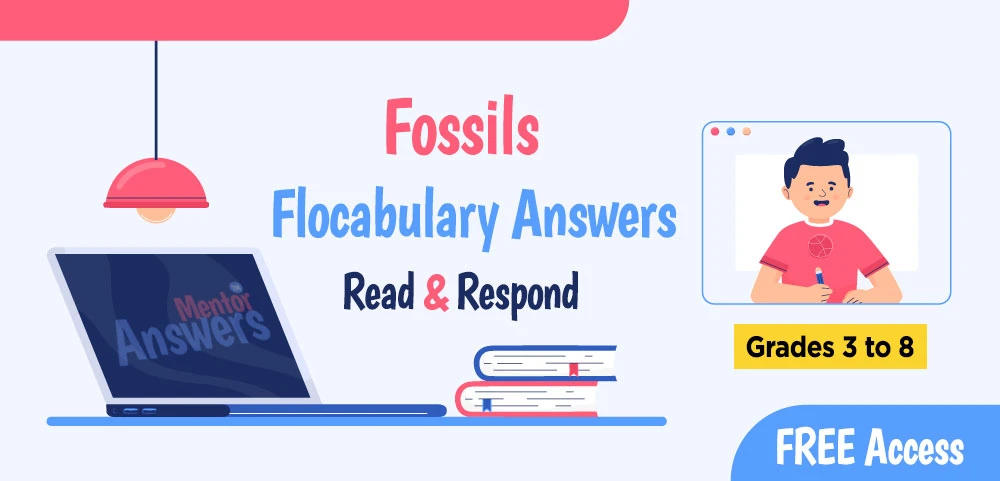Are you looking for a reliable source of answers for the Fossils Flocabulary Quiz, Read & Respond? You’ve come to the right place!
We have a team of teachers who have checked and verified the correct answers for all the questions. You can trust our expertise and save time by using our answers key.
Flocabulary Fossils Quiz Answers Key
- True
- False
- nonexistent
- easily formed
- important and rare
- common and unhelpful
- a desert that used to have a body of water in it
- a species that no longer lives anywhere on Earth
- a scientist who studies the history of life on Earth
- an ancient organism or its trace that has been preserved
- woolly mammoth footprints
- a T. Rex bite mark
- a dodo bird nest
- a shark tooth
- skin
- dung
- a leaf
- a skull
- a jellyfish’s very soft body
- fruit with a high water content
- a crab claw, which is very hard
- a horse’s mane, which is made of hair
- the bone was trapped in ice.
- the bone was trapped in amber.
- minerals seeped into cracks in the bone.
- an imprint of the bone was left in the ground.
- nuts.
- meat.
- grass.
- leaves.
- cast.
- mold.
- permineralized fossil.
- all of the above
- diet.
- size.
- weight.
- behavior.
Flocabulary Fossils Read & Respond Answers
Expand your knowledge by exploring the Read & Respond answers related to the topic of our Subject:
- fossils.
- extinct.
- animals.
- still alive.
- an oyster shell
- an ancient fern leaf
- an ancient bird nest
- a dinosaur’s jaw bone
- rare to find and hard to form
- often formed but never found
- always crushed and often soft
- common to find and easy to form
- Molds are body fossils, and casts are trace fossils.
- A mold is an imprint, and a cast is a filled-in imprint.
- Molds are made of amber, and casts are made of tar.
- Molds come from plants, and casts come from animals.
- trap a decomposer.
- be destroyed by sun.
- be exposed to scavengers.
- be slowly filled in with minerals.
- clues.
- theories.
- suspects.
- witnesses.
- too large.
- unhelpful.
- incomplete.
- not growing.
Are you interested in delving into additional subjects and Lessons related to Flocabulary? Check Here To Get All Flocabulary Answers Key.
If you have any questions or need more answers key for your favorite subject, please leave a comment below or contact us through our website. We would love to hear from you and assist you in your learning journey.

